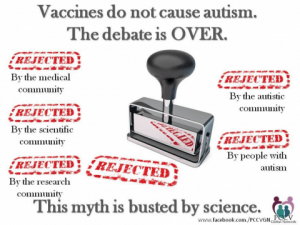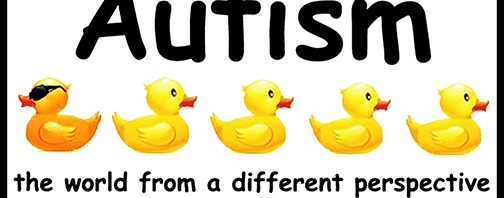Autism is a neurodevelopment disorder that is generally diagnosed at a young age. Over the past couple decades the rates of autism have been significantly increasing. According to the Autism Science Foundation, in the 1980’s autism affected roughly 1 in every 10,00 children. In the 1990’s it went down to 1/2500. Today, this number is significantly higher, affecting 1 in roughly every 68 children. So are these number really on the rise, or have we simply developed a better system of diagnosing it?

The environment plays a big role in the development of autism, especially while the child is still in the womb. Many different factors that affect the mother, can lead to the child developing autism. Some of these factors include maternal stress and a prenatal viral infection. With maternal stress, the increase in cortisol levels can affect the baby and lead to the development of autism. The stress can result in, according to an article written by Andreas M. Grabucker, “postnatal immune function abnormalities such as the proliferation of lymphocytes or affect the production of cytokines.” The stress that produces this affect can come from many different sources, a common one being the stress of having complications occur during labor.
A common cause of autism is zinc deficiency. During the pregnancy, if the mother has a zinc deficiency, the child is highly likely to develop autism. This deficiency can be caused by an excessive amount of copper in the body, copper overloads zinc and will decrease the levels of zinc as more copper is in the body. Poor diet can also lead to a zinc deficiency. One interesting fact, is that as a women is pregnant, her levels of estrogen will significantly increase. Estrogen has been known to also decrease levels of zinc. That is why, in todays society at least, that prenatal pills/vitamins contain zinc. The zinc deficiency directly affects the immune system, making it worse and making the mother more susceptible to infections.
Another factor that can cause autism is parental age. More specifically paternal age. Women are born with a set number of ages and will not develop any more throughout their lifetimes. However, men are always generating new sperm and are more susceptible to producing some with mutations. The older the father is, the more likely he is to develop some with mutations that can lead to autism.
There are some genes that are associated with autism, and these genes may be influenced by the environmental factors that cause autism. There is still research being done to determine if these genes alone are what cause autism or if they just produce a predisposition for this disorder and it’s the environmental factors that cause it to develop.
There is one thing that we know for a fact and that is VACCINATIONS NO NOT CAUSE AUTISM. This is giant debate for people and it has been disproven years ago that there is no correlation or link between autism and vaccinations.

Sources:
https://moodle.cord.edu/pluginfile.php/625310/mod_resource/content/1/autism%20and%20environ.pdf
